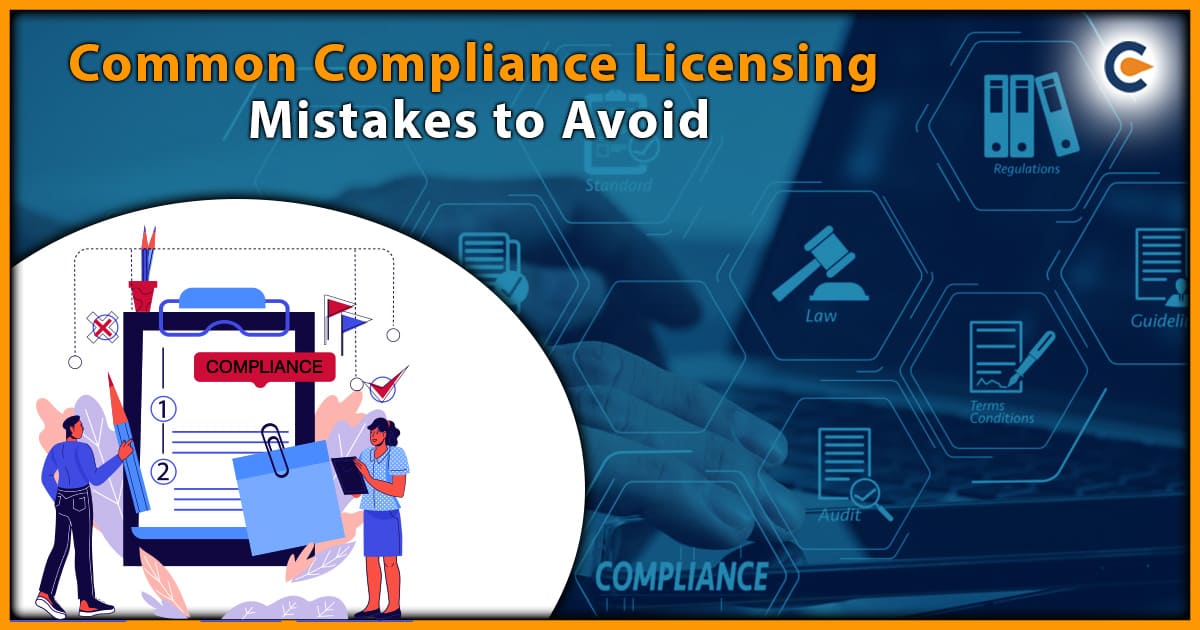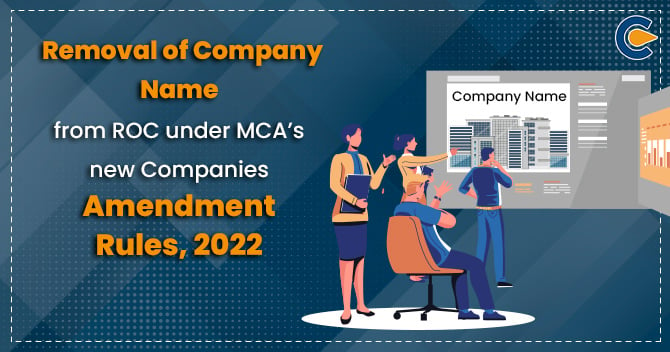Compliance licensing is critical to operating a business in today’s diverse and highly regulated industries. Regardless of the sector you belong to, understanding and adhering to licensing requirements are essential for maintaining legal compliance and ensuring the smooth operation of your business. Failure to comply with licensing regulations can result in severe consequences that may jeopardize your business’s reputation, financial stability, and existence. This comprehensive guide will delve into the importance of compliance licensing in various industries and provide an overview of the potential consequences of non-compliance.
Compliance licensing is a foundation for maintaining industry standards, protecting public interests, and fostering a fair and ethical marketplace. In industries such as healthcare, compliance licensing is directly linked to the health and safety of patients. It ensures that medical professionals and facilities adhere to rigorous standards, follow established protocols, and provide quality care. Similarly, in the finance and banking sectors, compliance licensing plays a crucial role in safeguarding the integrity of financial transactions and preventing fraudulent activities.
Non-compliance with licensing requirements can lead to a range of detrimental consequences. Legal penalties and fines are common possibilities, imposing significant financial burdens on businesses. Additionally, non-compliance can result in reputational damage, as negative publicity and customer distrust can undermine the credibility and viability of a business. In severe cases, non-compliance may lead to the suspension or revocation of licenses, disrupting business operations and potentially forcing closures.
In the following sections of this comprehensive guide, we will explore common compliance licensing mistakes businesses must avoid. By understanding these pitfalls and taking proactive measures to ensure compliance, you can protect your business from the potential risks and consequences associated with non-compliance.
Research and Understanding: Key Foundations for Compliance Licensing
Compliance licensing refers to the process of obtaining and maintaining the necessary licenses, permits, and certifications to ensure that an individual or organization complies with relevant laws, regulations, and standards. Research and understanding are critical foundations for successful compliance licensing, as they enable individuals and organizations to navigate the complex landscape of regulatory requirements and ensure that all necessary licenses are obtained and maintained. Here are some reasons why research and understanding are essential for compliance licensing:
- Identifying Applicable Regulations: Research helps identify the specific laws, regulations, and standards that apply to a particular industry or activity. It is crucial to understand the regulatory environment in which an organization operates to determine the required licenses and compliance obligations.
- Compliance Requirements: Research helps understand the specific compliance requirements associated with each license. Different licenses may have different application processes, documentation requirements, renewal procedures, and ongoing compliance obligations. Thorough research ensures that all these requirements are adequately understood and fulfilled.
- Eligibility Criteria: Research allows individuals and organizations to determine if they meet the eligibility criteria for obtaining a special license. This may involve understanding the educational qualifications, experience, financial stability, or other prerequisites the licensing authority specifies.
- Licensing Authority: Research helps identify the relevant licensing authority or regulatory agency responsible for issuing the licenses. Each jurisdiction may have different authorities or agencies overseeing specific industries or activities. Understanding the appropriate licensing authority is essential to ensure compliance with the correct regulations.
- Documentation and Application Process: Research is crucial for understanding the documentation and application process for obtaining a license. It involves gathering and organizing the required information, completing forms, submitting supporting documents, and following the correct procedures. Adequate research ensures that all necessary paperwork is completed accurately and submitted within the specified deadlines.
- Ongoing Compliance: Research helps understand the ongoing compliance obligations associated with each license. This includes maintaining records, renewing licenses periodically, and adhering to specific operational requirements. Ongoing research keeps individuals and organizations updated on any changes in regulations or compliance standards, ensuring continued compliance with licensing requirements.
- Consequences of Non-Compliance: Researching and understanding the consequences of non-compliance is essential. Failure to obtain or maintain the necessary licenses can result in penalties, fines, loss of reputation, and even legal consequences.
Understanding the potential risks and consequences motivates individuals and organizations to prioritize compliance licensing efforts.
Non-Compliance with Multiple Licensing Bodies
Neglecting proper documentation is a standard compliance licensing mistake that businesses should avoid. Incomplete or inaccurate record-keeping and failure to maintain necessary licenses, permits, and certifications can have significant consequences, including compliance penalties, legal liabilities, and operational disruptions. By prioritizing the organization and updating documentation, businesses can ensure compliance, mitigate risks, streamline operations, and safeguard their reputation. Taking a proactive approach to documentation is an investment in long-term success and sustainability.
- Incomplete or Inaccurate Record-Keeping: One of the businesses most significant mistakes is failing to maintain complete and accurate records of their compliance-related activities.
Incomplete or inaccurate record-keeping can have severe consequences, such as:
a) Compliance Penalties: Regulatory authorities require businesses to maintain records to prove their compliance with various regulations. Failure to do so can result in hefty fines and penalties.
b) Legal Liabilities: Inaccurate records can expose businesses to legal liabilities in case of audits, investigations, or lawsuits. With proper documentation, it becomes easier to demonstrate adherence to compliance standards and defend against legal claims.
c) Operational Disruptions: Incomplete records can lead to disruptions in day-to-day operations. Inaccurate or missing information can delay license renewals, create confusion during audits, and impede smooth business operations.
- Failure to Maintain Necessary Licenses, Permits, and Certifications: Businesses often need to pay more attention to the significance of staying up-to-date with the licenses, permits, and certifications relevant to their industry.
This mistake can have serious repercussions:
a) Compliance Breaches: Operating with the proper licenses, permits, or certifications can result in compliance with regulatory requirements. This can lead to legal issues, reputational damage, and even business closures.
b) Loss of Credibility: Customers, partners, and stakeholders expect businesses to operate legally and ethically. Maintaining the necessary licenses and certifications can erode trust and credibility, losing valuable business relationships.
c) Missed Opportunities: With the appropriate licenses or certifications, businesses may be eligible to participate in certain industry-specific opportunities, such as bidding on contracts or accessing government funding.
Proper documentation is crucial for businesses to ensure compliance with regulations. By maintaining comprehensive records, businesses can easily demonstrate their adherence to rules and regulations during audits, inspections, and compliance reviews. This not only makes the process easier but also helps businesses avoid penalties.
Well-organized documentation also helps businesses identify potential compliance risks in advance. Regularly updating and reviewing documentation allows for timely rectification of any issues, reducing the chances of non-compliance and associated penalties.
Efficient documentation processes lead to streamlined operations. Organized records make it easier to track license renewals, monitor regulatory changes, and ensure that all necessary permits and certifications are in place. This helps businesses avoid operational disruptions and maintain a smooth workflow.
Strategies for navigating and complying with multiple licensing bodies:
To avoid the pitfalls of non-compliance with multiple licensing bodies, consider implementing the following strategies:
- Thorough Research and Planning: Start by identifying all the jurisdictions your business operates or intends to operate. Research and understand each location’s specific licensing requirements and regulatory frameworks. Seek professional advice if necessary to ensure you comprehensively understand the obligations.
- Compliance Calendar: Maintain a centralized compliance calendar that tracks all licensing obligations, renewal dates, and regulatory deadlines. This will help you stay organized and ensure timely compliance with all licensing requirements.
- Dedicated Compliance Team: Establish a dedicated compliance team or designate responsible individuals within your organization to oversee licensing obligations. This team should clearly understand the requirements and be responsible for monitoring and managing compliance across all jurisdictions.
- Regular Audits and Reviews: Conduct periodic audits and reviews of your licensing obligations to identify any gaps or areas of non-compliance. This proactive approach will enable you to rectify any issues and avoid penalties promptly.
- Engage Legal And Compliance Experts: Consider consulting legal and compliance professionals who specialize in the specific regulatory frameworks of the jurisdictions in which you operate. Their expertise will help ensure comprehensive compliance and mitigate risks associated with multiple licensing bodies.
Lack of Compliance Monitoring
Lack of compliance monitoring can have severe consequences for businesses. Compliance licensing requires ongoing monitoring to ensure adherence to regulations and licensing requirements. Without proper monitoring, unintentional violations can occur due to changes in laws, regulations, or internal operations. Implementing compliance monitoring systems and conducting regular audits are essential. Internal controls such as policy reviews, employee training, and accurate record keeping help detect deviations and issues early on. External compliance checks by third-party auditors provides an unbiased evaluation. Taking timely corrective actions is crucial when violations are identified. Staying updated on regulatory changes through industry publications and communication with regulatory authorities is vital. Employee training fosters compliance awareness and a culture of compliance. Seeking professional assistance from compliance consultants or legal experts can strengthen compliance processes. Effective compliance monitoring practices reduce the risk of violations and penalties, demonstrating a commitment to ethical business practices. It builds trust with regulatory authorities and customers. By proactively identifying and addressing compliance issues, businesses can protect their reputation and ensure ethical and legal operations.
Importance of Professional Assistance
Not seeking professional assistance in compliance licensing can be a costly mistake. Compliance licensing can be complex, particularly in highly regulated industries. Professionals specializing in compliance licensing possess the knowledge and expertise to navigate through the intricacies successfully, ensuring that all necessary requirements are met, and compliance pitfalls are avoided. They stay updated with regulatory changes and possess an in-depth understanding of the evolving landscape, providing accurate and current information to help businesses stay compliant. Seeking professional assistance ensures personalized guidance tailored to the specific needs of your business, taking into account industry, location, and activities. By involving professionals, you minimize the risks associated with non-compliance and enhance your chances of meeting obligations, mitigating potential penalties, legal disputes, or business suspensions. It also saves time and resources, allowing you to focus on core business activities while experts handle the intricacies of compliance licensing. Professionals have access to extensive networks and resources, connecting you with experts, industry associations, or regulatory authorities to enhance compliance efforts and stay informed about best practices. They help prepare for audits and inspections, ensure organized and accurate documentation, and provide ongoing support for maintaining compliance. Engaging professional assistance provides peace of mind, knowing that your business operates within legal boundaries and has met all regulatory requirements. Remember, compliance licensing is critical, and seeking professional assistance ensures the necessary guidance and support to navigate it successfully.
Conclusion
Compliance licensing is vital to running a business in today’s highly regulated landscape. By avoiding common compliance licensing mistakes, businesses can safeguard their operations, protect their reputation, and ensure long-term success. Thorough research, understanding of licensing requirements, and staying updated on industry regulations are essential foundations for compliance. Neglecting proper documentation can lead to compliance penalties, legal liabilities, and operational disruptions. Maintaining accurate records and necessary licenses, permits, and certifications is crucial for demonstrating compliance and streamlining operations. Non-compliance with multiple licensing bodies can be avoided by conducting due diligence, staying informed about regulatory changes, and implementing strategies such as thorough research, compliance calendars, dedicated compliance teams, regular audits, and engaging legal and compliance experts. Lack of compliance monitoring can result in unintentional violations, making regular audits, internal controls, external compliance checks, and timely corrective actions necessary. Staying updated on regulatory changes, providing employee training, and seeking professional assistance further strengthen compliance efforts. By adhering to compliance licensing requirements and seeking professional guidance when needed, businesses can operate ethically, avoid penalties, build trust with stakeholders, and maintain a competitive edge in the marketplace.
Read Our Article: Importance Of Medical Device Compliance In India – An Overview











